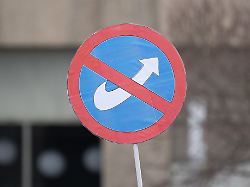According to the Karlsruhe NPD ruling
Politicians also want AfD funding to be cut
January 24, 2024, 8:33 a.m
Listen to article
This audio version was artificially generated. More info | Send feedback
In the first case of this kind, the Federal Constitutional Court decides that the NPD successor party Die Heimat will no longer receive state funds in the future. In response to the ruling, a cross-party discussion broke out as to whether the AfD’s financial flows could also be restricted.
After the Karlsruhe ruling to stop state funding of the former NPD, politicians from several parties have called for the impact on the AfD to be examined. “It cannot be the case that the constitutional state finances its own enemies. The consequences of the verdict must now be examined quickly and carefully,” said Green Party deputy Konstantin von Notz of the Funke media group. Federal Chancellor Olaf Scholz had previously announced that he would analyze the possible effects of the ruling. Vice Chancellor Robert Habeck referred to high legal hurdles when banning parties and restricting financial flows.
“This is a question that the courts have to clarify based on the evidence that the services determine,” said Economics Minister Habeck to the Welt television station. The open society also gives its enemies a lot of space, and that also applies to the AfD. “We have to stand by the principles of an open society.”
CSU General Secretary Martin Huber said that the exclusion of the AfD from party financing must be examined urgently and comprehensively. “The AfD is being watched by the Office for the Protection of the Constitution because it is unconstitutional. The verdict could be a blueprint for the AfD,” he told the editorial network Germany (RND). Bavaria’s Prime Minister Markus Söder had already made similar statements.
Karlsruhe cuts party funding for NPD successors
The Federal Constitutional Court ruled on Tuesday morning that the right-wing extremist National Democratic Party of Germany (NPD), which renamed itself “Die Heimat” in June, would be excluded from state party funding for six years. It was the first case of its kind at Germany’s highest court. The federal government, Bundestag and Bundesrat submitted the application.
Applications to ban the NPD failed before the Federal Constitutional Court in 2003 and 2017. A possible ban procedure against the AfD is currently being discussed. This could only be requested by the federal government, the Bundestag and the Bundesrat.
SPD General Secretary Kevin Kühnert said that the Karlsruhe decision was based on years of research to prove the party’s actions against the free-democratic basic order. “In the short term, such steps against the AfD are not viable and that is why we should not leave the protection of our constitution to the Karlsruhe judges alone,” he told the “Westfälische Nachrichten”.
Habeck: AfD “poison for Germany as a business location”
According to Economics Minister Habeck, the AfD poses a threat to Germany as a business location. “If you take these crazy fascist plans that they have expressed seriously – that is, to expel all people who are not German according to their definition – then you can count everything from restaurants to crafts to shipping companies that means. Then the location is dead,” he told Welt TV.
Business representatives also warned against the AfD. “Radicalization driven by AfD election successes would fuel economic uncertainty in the country even more,” said the President of the Association of Family Businesses, Marie-Christine Ostermann, to the “Rheinische Post”.
The President of the Association of the Automotive Industry (VDA), Hildegard Müller, called on German companies to take a stand against right-wing extremism. “We all – and by that I explicitly mean the economy – must stand up for our values, for our democracy and take responsibility,” she told the “Rheinische Post”.
Demonstrations continue
Meanwhile, people took to the streets in several German cities on Tuesday evening to demonstrate against right-wing extremism. According to the police, 17,000 people demonstrated in Darmstadt in Hesse alone.
Left leader Martin Schirdewan said the mass demonstrations showed that the majority of people in Germany did not want a shift to the right or a step downwards. “The federal government is partly to blame for the rise of the right because it allows social cohesion to continue to deteriorate while prices rise and the profits and assets of a few rich people go through the roof,” he told the Funke media group. The governing parties must act now instead of contenting themselves with selfies and Sunday speeches.
Last weekend, according to police information, more than 900,000 to 1.5 million people demonstrated across Germany against right-wing extremism and for the protection of democracy. The protests were triggered by revelations from the Correctiv research center about a meeting of right-wing extremists on November 25th, in which some AfD politicians as well as individual members of the CDU and the very conservative Values Union took part in Potsdam.
The former head of the right-wing extremist Identitarian Movement in Austria, Martin Sellner, said he spoke about “remigration” at the meeting. When right-wing extremists use the term, they usually mean that large numbers of people of foreign origin should leave the country – even under duress.
